If you’re a fan of Mountain Dew, you’ve likely tried the iconic Baja Blast, known for its tropical lime and pineapple flavors. This staple soda, available at Taco Bell, has become a favorite for those looking to enjoy a refreshing drink with a twist.
But the big question is, does it give you an energy boost? With 54 mg of caffeine in every 12-ounce bottle, Baja Blast delivers a modest kick, making it a great option for staying energized throughout your day. Its unique combination of sweetness and tanginess also makes it stand out in a world of soda choices.
For those looking for something colder, the Baja Blast Freeze offers a slushy version with 36 mg of caffeine per 12 fl oz. Whether you’re an avid soda drinker, a fan of trying new flavors, or just curious about how it compares to coffee, this fountain beverage keeps things interesting.
With 31 g of sugar and 120 calories, it’s not just a treat but also an experience. Loved by fans around the world, Baja Blast continues to be a go-to choice for those wanting a little extra buzz in their day.
What Is a Baja Blast?
Baja Blast is a tropical, refreshing soft drink created by Mountain Dew in 2004. Exclusively served at Taco Bell in both the United States and Canada, it has a unique flavor that blends hints of a lime slushie with the essence of a margarita.
Available in various forms like frozen cocktails, slushes, and even diet versions, this popular choice has earned a loyal following among fans. Its taste is widely enjoyed, and over the years, it has become a staple at restaurants across its locations, making it a true favorite among people who love something different.
Does Baja Blast Have Caffeine?
Yes, Mountain Dew Baja Blast contains caffeine. A 12-ounce serving contains 54 mg of caffeine, while a 20-ounce bottle has 98 mg. Different variations have varying amounts: Baja Blast Freeze contains 36 mg per 12 oz, and Baja Blast Zero Sugar contains 113 mg per 20 oz.
Fun Facts About Baja Blast!
- Mountain Dew Baja Blast is a popular soda flavor.
- Yes, like most Mountain Dew products, Baja Blast contains caffeine.
- It was originally a Taco Bell exclusive drink.
- Its unique tropical lime flavor has made it a fan favorite.
How Much Caffeine Is in a Mountain Dew Baja Blast?
Baja Blast is a unique beverage created by Mountain Dew, known for its tropical flavor and moderate caffeine content. With 54 milligrams of caffeine in every 12 ounces, it provides a subtle boost, unlike stronger drinks like coffee. Available in various serving sizes, it’s perfect for those who enjoy sodas without an overwhelming caffeine hit.
Whether you compare it to other brands or debate its effects, it balances refreshment and energy well. For fans of flavorful, caffeinated beverages, Baja Blast is a standout option that blends taste and function seamlessly.
The chart below highlights the caffeine content in Baja Blast across various serving sizes available.
| Serving Size | Caffeine(mg) | Calories |
| 100 ml | 15.2 mg | 47.9 |
| 8 fl oz | 36 mg | 113.3 |
| 12 fl oz | 54 mg | 170 |
- Does NOS Energy Drink Have Caffeine? Expert Guide (2025)
- Does Bubbl’r Sparkling Water Have Caffeine? Full Breakdown In 2025
- Does Elderberry Energy Drink Contain Caffeine? Complete 2025 Review
Is a Mountain Dew Baja Blast Considered High in Caffeine?
Mountain Dew Baja Blast contains 54 mg of caffeine in a 12 fl oz cup, making it a moderate option compared to energy drinks like Red Bull, which packs 80 mg, or Monster, with a hefty 160 mg in the same size.
With 4.50 mg of caffeine per fl oz or 15.22 mg per 100 ml, it provides a steady boost without being overwhelming. While it may not rival energy drinks in terms of caffeine, it offers a pleasant balance of flavor and energy.
Among soda beverages, Baja Blast stands out with its caffeinated edge. Popular drinks like Sprite, 7Up, and Ginger Ale have no caffeine, while options such as root beer, Diet Dr. Pepper, and similar sodas contain minimal caffeine, often around 36 mg per can.
Baja Blast delivers more energy than these sodas while offering its signature tropical flavor, making it a favorite for those who want a flavorful yet energizing beverage.
Mountain Dew Baja Blast vs. Coffee
Mountain Dew Baja Blast and black coffee are two popular beverages that both contain caffeine, but they differ in several aspects. A Baja Blast has around 54 milligrams of caffeine in every 12 ounces, while a 20-ounce cup of coffee typically contains between 80-100 milligrams of caffeine.
This means coffee has significantly more caffeine, which can enhance mental alertness, and focus, and provide other potential health benefits such as reducing the risk of certain diseases like Parkinson’s and Type 2 diabetes. However, these claims need more research to be fully confirmed.
When it comes to calories, black coffee is the clear winner, with less than five calories per cup, compared to the sugar-laden Baja Blast, which offers more flavor but also more calories. The bitter flavor of coffee, however, might not appeal to everyone, and many people prefer the taste of a Baja Blast, especially when craving something sweet and refreshing.
Your choice may also depend on where you’re buying your beverage, such as a place like Starbucks, where a caffeinated drink like their Pink Drink might offer a similar level of sugar content and calorie count as a Baja Blast. Ultimately, it comes down to what you put in your drink and what suits your preferences.
Mountain Dew Baja Blast vs. Tea
Mountain Dew Baja Blast and tea both contain caffeine, but their contents differ. A cup of black tea has between 14-60 mg, while a Baja Blast contains 54 mg. Tea is known as a rich source of antioxidants, which can improve heart health and even reduce certain types of cancer, making it a healthier option.
Similar to coffee, tea has almost zero calories, whereas Baja Blast has more sweetness but also more calories. However, the bitter flavor of tea may not appeal to everyone, making the tropical taste of Baja Blast a favorite for those seeking a flavorful caffeine boost.
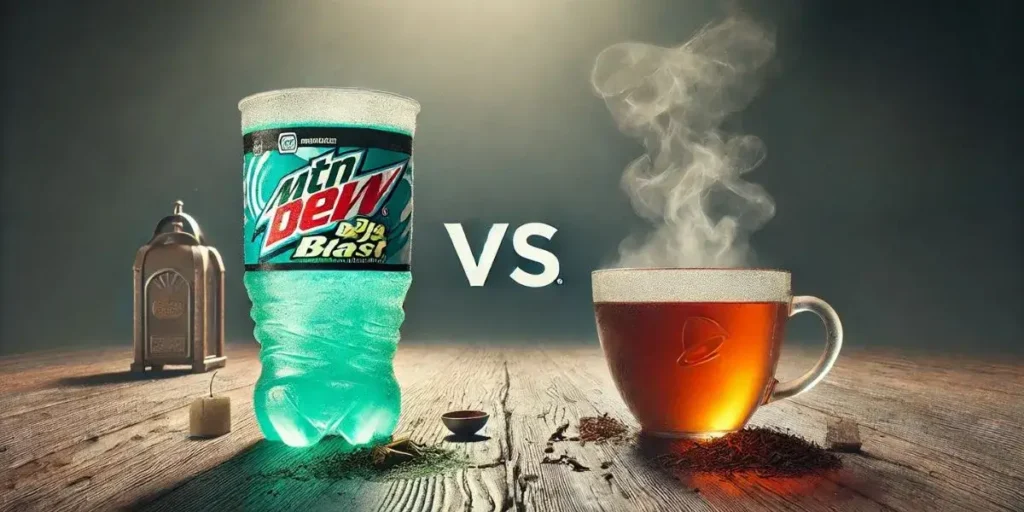
Mountain Dew Baja Blast vs. Other Mountain Dew Drinks: Which Has the Most Caffeine?
When comparing Mountain Dew flavors, most have 91 mg of caffeine per 20 oz, but the Baja Blast contains slightly more at 98 grams per the same size. Other flavors like Summer Freeze come close, with just one more gram, but the real standout is Game Fuel Mystic Punch, which packs 114 mg of caffeine per 20 oz, making it the strongest option.
Interestingly, this is only one gram higher than Citrus Cherry and the various Zero Sugars options, highlighting how diverse the caffeine content is across the Game Fuel and Mountain Dew lineup.
Now that we’ve compared the caffeine content of Mountain Dew Baja Blast to coffee, let’s take a look at how it measures up against other Mountain Dew flavors.
| Mountain Dew Rise | 180 mg per 16 ounces |
| Mountain Dew Amp | 142 mg per 16 ounces |
| Mountain Dew Game Fuel | 90 mg per 16 ounces |
| Mountain Dew Kickstart Series | 90 mg per 16 ounces |
| Mountain Dew Zero Sugar | 68 mg per 12 ounces |
| Mountain Dew Major Melon | 55 mg per 12 ounces |
| Mountain Dew Voltage | 55 mg per 12 ounces |
| Mountain Dew Live Wire | 54 mg per 12 ounces |
| Mountain Dew Code Red | 54 mg per 12 ounces |
| Diet Mountain Dew | 54 mg per 12 ounces |
Baja Blast Nutritional Information
Baja Blast, a popular Mountain Dew flavor, is known for its distinctive tropical lime taste. A standard 16.9 fl oz bottle of Baja Blast typically contains around 230 calories and a significant 62 grams of total sugar, with all of it being added sugar. It also includes about 80 mg of sodium and 58 mg of caffeine per 12 fl oz serving, with no fat or protein. Consumers should note its high sugar content when considering it as part of a balanced diet.
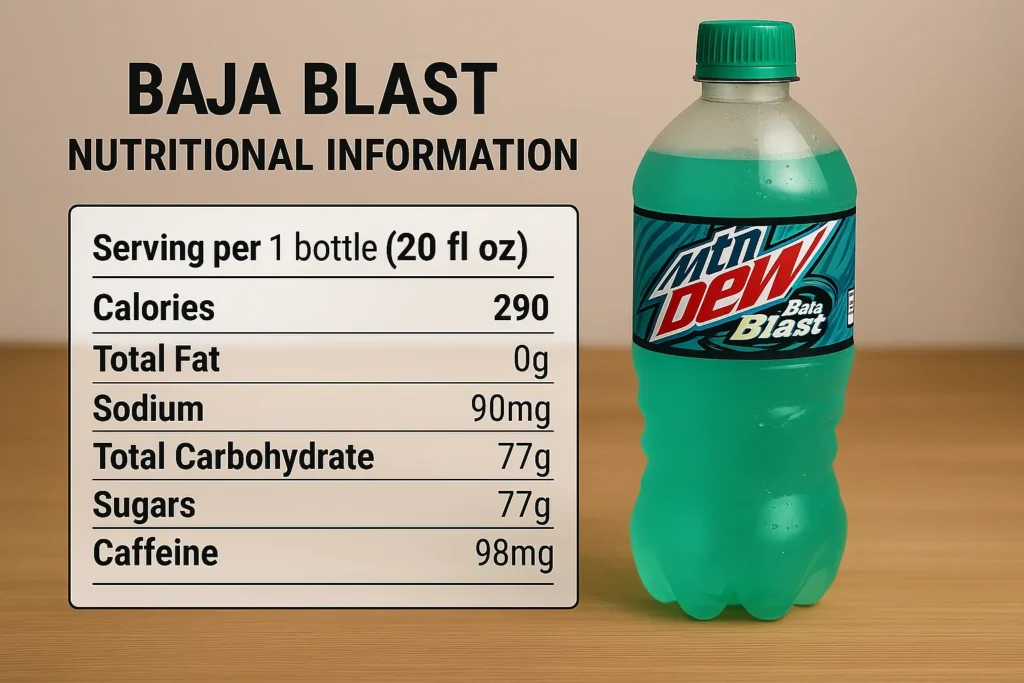
Is Mountain Dew Baja Blast Healthy?
Mountain Dew Baja Blast contains caffeine and 59 grams of sugar in a 16-ounce serving, exceeding the AHA-recommended amount of 36 grams per day. It’s a sugary soft drink with artificial sweeteners, making it high in calories and generally considered unhealthy. Even the zero-sugar version uses questionable substitutes, raising concerns for those mindful of their health.
Ingredients in Mountain Dew Baja Blast
Mountain Dew Baja Blast is made with carbonated water, high fructose corn syrup, citric acid, caffeine, and a mix of natural and artificial flavors. It also includes sodium benzoate (to preserve freshness), sodium citrate, gum arabic, calcium disodium EDTA (to protect flavor), and food colorings like Yellow 5 and Blue 1. Each 12-ounce serving contains 44 grams of sugar and 170 calories.
Alternatives to Baja Blast and their Caffeine Content
If you’re looking for substitutes for Baja Blast, there are a few options that provide similar qualities and flavors. Drinks with a comparable taste might not match it exactly, but they’re worth a try if you’re craving something tropical. Think of alternatives that balance sweetness with a citrusy punch.
Mountain Dew
For a relative to Baja Blast, consider drinks with a citrusy base that share a similar foundation but lack a tropical twist. One option contains caffeine at 54mg per 12 fl oz can, offering a refreshing alternative.
Flavored sparkling waters
Brands like LaCroix, Bubly, and Spindrift offer naturally flavored sparkling waters with a fruity taste. They contain zero caffeine and minimal added sugar, making them a refreshing and healthy choice.
Tropical-flavored sodas
Brands like Fanta, Jarritos, and Crush offer tropical fruit flavors such as pineapple and mango. While not identical, they provide similar vibes for those who enjoy bold and refreshing drinks.
Mello Yllo
A citrus-forward soda with smooth, mellow sweetness is another great option. One drink offers caffeine at 51mg per 12 fl oz can, making it both flavorful and energizing.
Lemon-lime sodas
Drinks like Sprite, 7Up, and Jarritos deliver a refreshing fizz with citrusy notes. These options have less sugar and no caffeine, making them light and enjoyable alternatives.
Izze
A brand of sparkling juice beverages with lower sugar content than sodas might appeal to Baja Blast fans. These fruit flavors are caffeine-free, offering a refreshing twist for those seeking alternatives.
Caffeine-free alternatives of Baja Blast
The table represents the best alternatives for Mountain Dew Baja Blast with zero caffeine:
| Bevarages | Caffeine content |
| IZZE Sparkling Juice | Caffeine-free |
| Spindrift Sparkling Water | Caffeine-free |
| Bubly Lacroix Sparkling Water | Caffeine-free |
| Lacroix Sparkling Water | Caffeine-free |
| Sprite | Caffeine-free |
| Jarriots Lime | Caffeine-free |
| Jarriots Fruit Punch | Caffeine-free |
| 7Up | Caffeine-free |
| Fanta Fruit Twist | Caffeine-free |
| Fanta Fruit Pineapple | Caffeine-free |
Final Thoughts
While Baja Blast does contain caffeine, the amount is moderate. However, if you have caffeine sensitivities, it’s important to consult your doctor before consuming this or any other caffeinated beverage.
FAQs
Does Baja Blast Zero from Taco Bell Have Caffeine?
Baja Blast Zero from Taco Bell is a Mountain Dew beverage that contains caffeine. The caffeine content varies by serving size, with 12 fl oz offering 68 mg and 20 fl oz providing 113 mg. This carbonated, sugar-free drink is a zero-sugar option for those who enjoy a stimulating, energy-boosting soda. The caffeine levels in this product align with its regular variation, making it a specific choice for sensitive individuals or anyone mindful of their caffeine amount and consumption.
Does Mountain Dew Have Caffeine?
Mountain Dew is a soda that contains caffeine, with its caffeine content depending on the flavor and size. A 12 oz serving has about 54–55 mg, while a 20 fl oz bottle contains around 91 mg. The zero sugar version of Mountain Dew has more caffeine compared to the regular version, making it one of the most caffeinated soda formulas. The range of caffeine levels in Mountain Dew varies between 55–135 mg, offering a strong energy boost for those who enjoy its unique taste.
Is Baja Blast Alcoholic?
Yes, Baja Blast is available in an alcoholic version called Hard Mtn Dew Baja Blast. This drink has an alcohol content of 5% alcohol by volume, offering fans of the classic Baja Blast a refreshing new twist with a stronger kick. The Hard version maintains the same tropical flavor but is specifically crafted for those who enjoy a spirited option.
Is Baja Blast Coke or Pepsi?
Baja Blast is a PepsiCo product and part of the Mountain Dew lineup, first introduced on July 29, 2004. Manufactured by PepsiCo, the parent company of Mountain Dew, it originates from the United States and is known for its tropical flavor that complements Taco Bell’s menu.
Does Baja Blast contain more caffeine than regular Mountain Dew?
Yes, Baja Blast generally has slightly more caffeine than regular Mountain Dew. A 12 fl oz serving of Baja Blast typically contains around 54-59 mg, while regular Mountain Dew has about 55 mg per 12 fl oz.
What’s the difference between fountain and bottled Baja Blast caffeine?
Fountain Baja Blast and bottled Baja Blast have comparable caffeine levels per serving, with slight variations possible due to dispenser calibration or ice amounts in fountain drinks. For instance, a 12 fl oz fountain Baja Blast might have 54 mg, similar to its bottled counterpart.

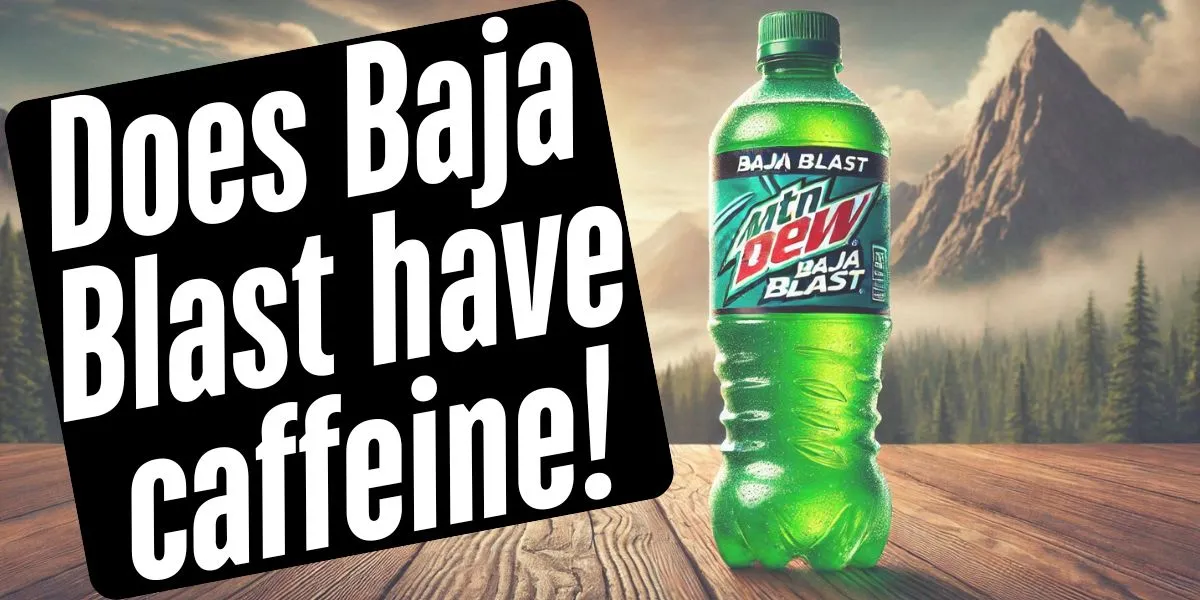
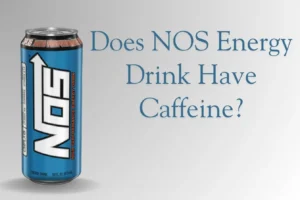
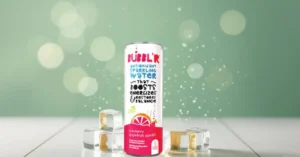
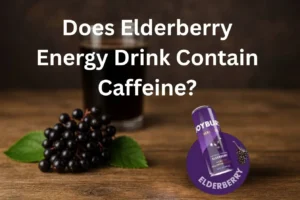
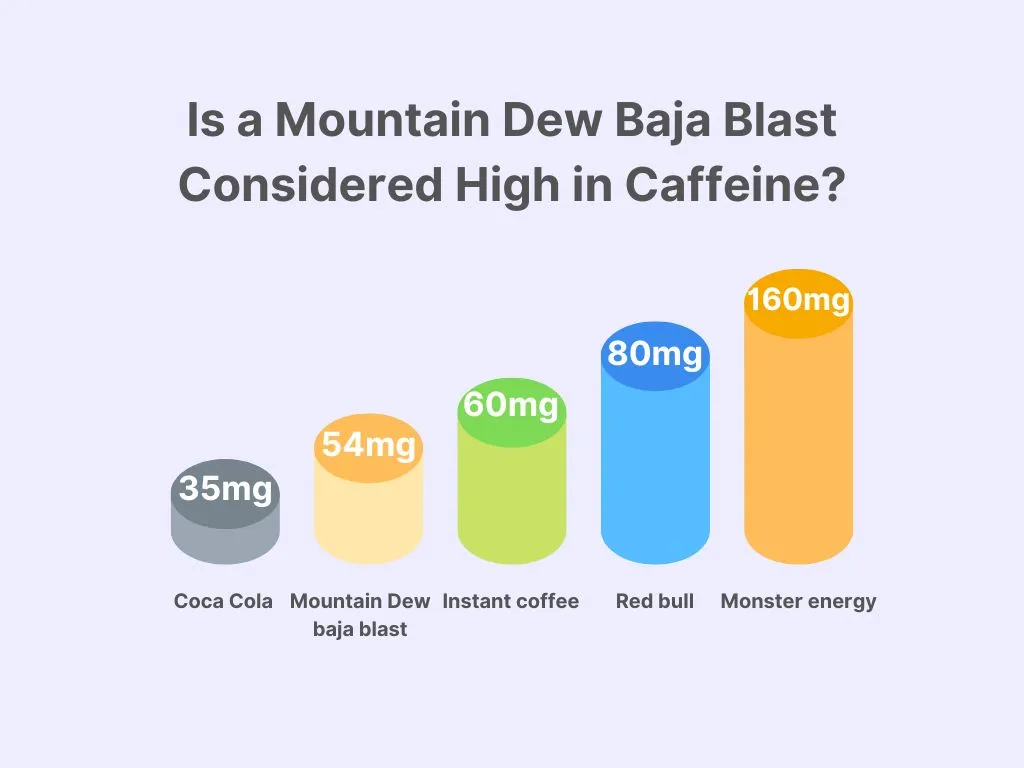
Hey just wanted to give you a quick heads up. The text in your article seem to be running off the screen in Chrome.
I’m not sure if this is a formatting issue or something to do with web browser compatibility but I figured I’d post to let you know.
The style and design look great though! Hope you get the issue resolved soon. Cheers
You can definitely see your enthusiasm in the work you write.
The sector hopes for more passionate writers like you who are not afraid to say how they believe.
At all times follow your heart.
Having read this I thought it was really enlightening. I appreciate you taking the time and
effort to put this short article together. I
once again find myself spending a lot of time both reading and
posting comments. But so what, it was still worth it!
Nice post. I was checking constantly this blog and
I am impressed! Extremely helpful info specially the last part :
) I care for such information much. I was seeking this particular information for a very long time.
Thank you and best of luck.
Hmm it seems like your blog ate my first comment (it was super long) so I guess I’ll just sum it up what I submitted and say, I’m thoroughly enjoying
your blog. I as well am an aspiring blog blogger but I’m still new to the whole thing.
Do you have any tips for rookie blog writers? I’d really appreciate it.
Hello colleagues, how is all, and what you would
like to say regarding this post, in my view its actually remarkable designed for me.
It is not my first time tߋ pay a visit this web site,
i am browsing this website dailⅼy and get nice information from hеre everyday.
Also visit my page digital banking
If some one wants expert view about running a blog then i suggest
him/her to go to see this weblog, Keep up the pleasant
job.
Howdy just wanted to give you a quick heads up. The text in your post seem to be running off the screen in Opera.
I’m not sure if this is a format issue or something to do with web
browser compatibility but I thought I’d post to let you know.
The layout look great though! Hope you get the problem solved soon. Thanks
Have you ever considered about adding a little bit more than just your
articles? I mean, what you say is fundamental and everything.
Nevertheless just imagine if you added some great pictures or
video clips to give your posts more, “pop”! Your
content is excellent but with images and clips, this blog could undeniably be one of the most beneficial in its
niche. Good blog!
Hello there! This post could not be written any better!
Reading through this post reminds me of my old
room mate! He always kept chatting about this. I will forward this
article to him. Fairly certain he will have a good read.
Thanks for sharing!
I’d like to find out more? I’d care to find out some additional information.
I feel this is among the most vital info for me.
And i am glad studying your article. But want to commentary on some common things, The
website taste is wonderful, the articles is in point of fact
excellent : D. Good activity, cheers
Oh my goodness! Awesome article dude! Thank you, However I
am encountering troubles with your RSS. I don’t know
the reason why I can’t join it. Is there anyone else getting identical RSS problems?
Anybody who knows the solution will you kindly respond?
Thanx!!
Have you ever considered publishing an e-book
or guest authoring on other websites? I have a blog based
upon on the same information you discuss and would really like to have you share some
stories/information. I know my audience would
value your work. If you’re even remotely interested, feel free
to send me an e mail.
I’ve been browsing online more than 3 hours nowadays,
yet I never discovered any fascinating article like yours.
It is beautiful price sufficient for me. Personally, if all site
owners and bloggers made good content material as you did,
the net can be a lot more helpful than ever before.
Hey there! I’m at work browsing your blog from my new
iphone 4! Just wanted to say I love reading through your blog and look forward to all your posts!
Carry on the outstanding work!